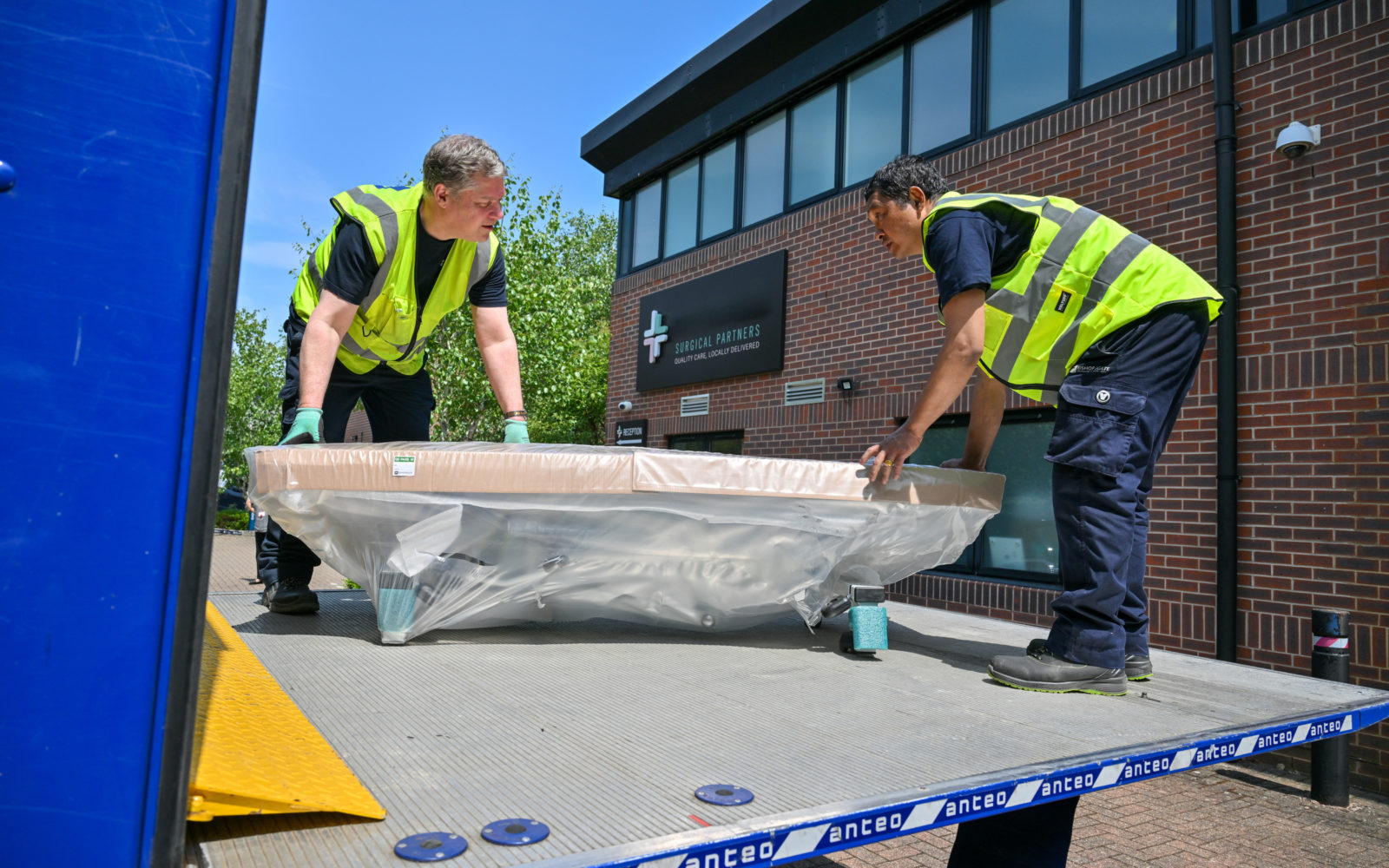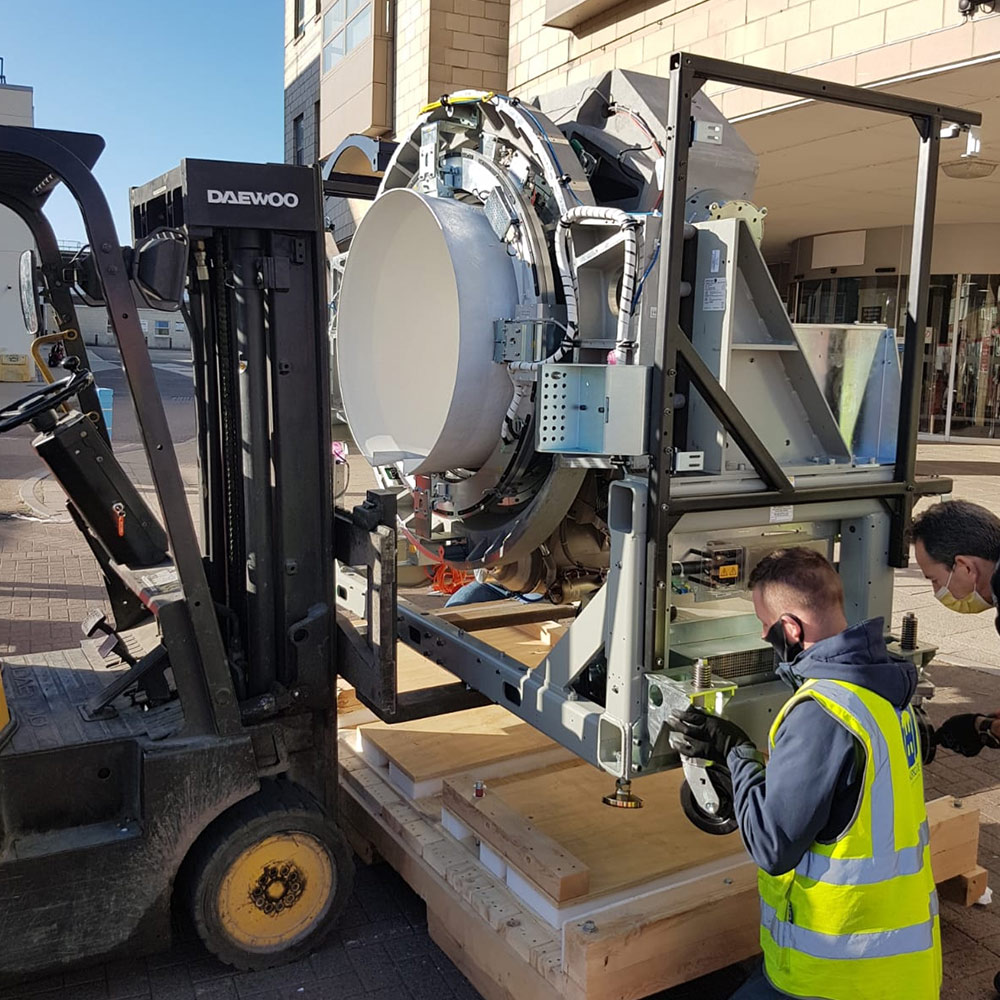Get an expert – partner with a professional, experienced team
While you can try moving medical equipment yourself, we would not advise it. It is always better to partner with a professional, experienced team who understands your unique moving requirements.
Medical organisations will sometimes attempt to move items themselves. This risks not only the equipment and patient safety, but also increases their administrative burden. They have to manage the project themselves and ensure that they have all the necessary documentation.
By contrast, end-to-end professional moving services do all of this for you. They manage the project from wholesale to “last mile,” taking care of collecting, receiving, delivering, installing and commissioning equipment, minimising additional overheads.
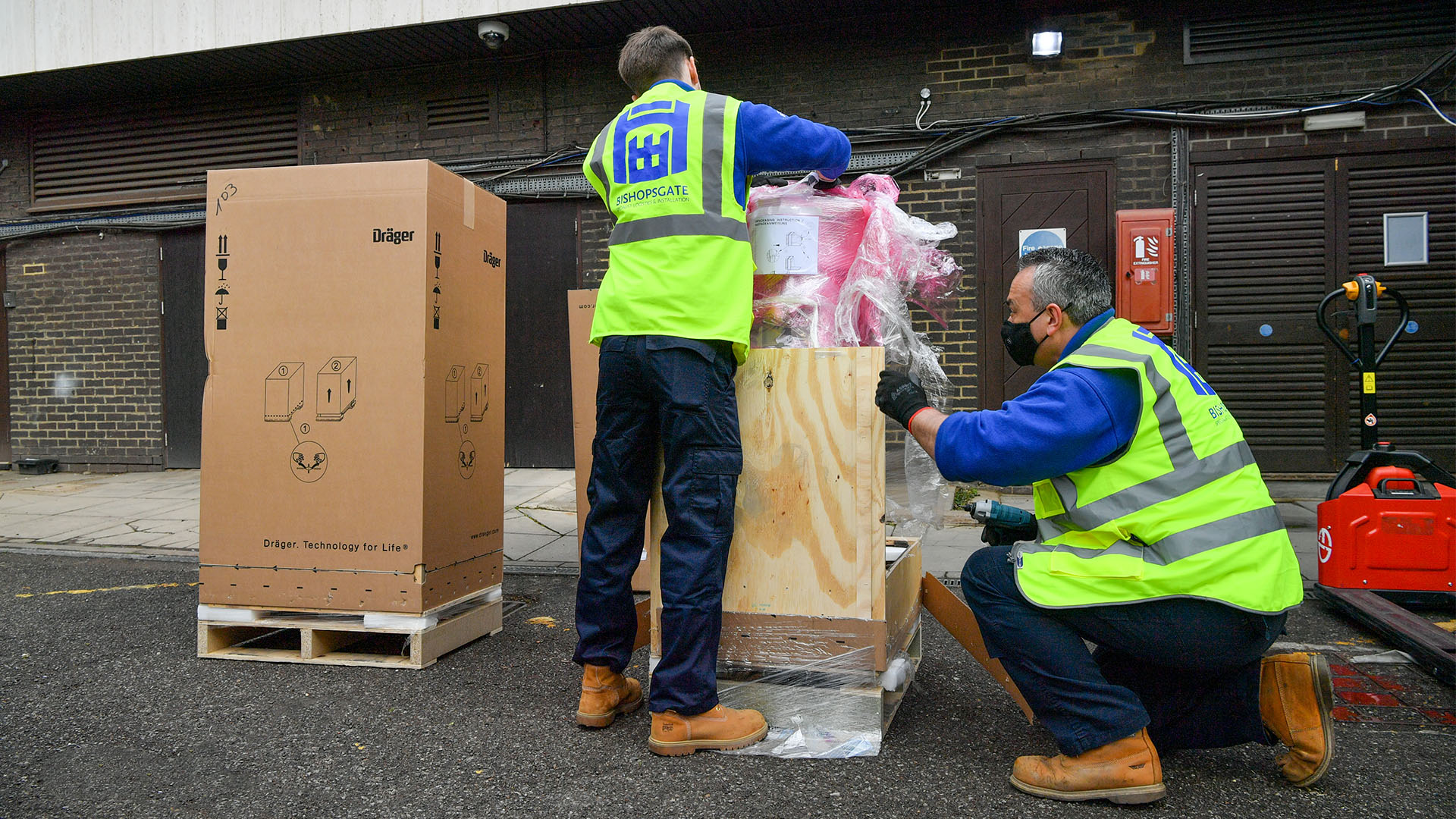
Plan For Success
Before you move any medical equipment, you need to plan. Planning is essential for many reasons, including:
- Ensuring the suitability of your site (checking that your premises can accommodate the delivery before transport)
- Working around your existing operational needs (such as conducting installations during off-peak hours to minimise disruption)
- Reducing risk and ensuring that the equipment remains safe, functional and usable
- Installing equipment in time so that it can start benefiting patients immediately
- Managing multiple deliveries across geographically disparate sites
If you don’t plan, you are more likely to encounter problems. For instance, you may discover that you have insufficient space for your new medical equipment, or the delivery and installation process may disrupt your workflows.
Fortunately, planning is easy – just consult with your medical equipment moving company. They have all the necessary experience to predict and avoid problems before they occur.
Use site surveys to plan for restricted access
Site surveys involve inspecting and appraising your workplace to ensure seamless delivery of medical equipment. The goal is to leave no stone unturned and to guarantee site suitability before any crews arrive on the scene.
Site surveys are critical when planning for restricted access. Medical equipment can sometimes be bulky and difficult to deliver to specific locations in conventional buildings. A site survey is a type of insurance policy: it lets you know whether your current plans are feasible, given your building arrangements. It is also helpful for determining the type of equipment and packaging needed to move your items.
In some cases, medical equipment transport is as simple as unloading it from the truck and using a two-person team to carry it to its intended location. However, for large, bulky, or extremely delicate items, you may require a more sophisticated approach. For instance, supplies may require special packaging to protect them against potential hazards such as tight stairwells or narrow entrances. They may also require the use of moving tools, such as hoists, cranes and stair robots. Site surveys let you prepare for this in advance.
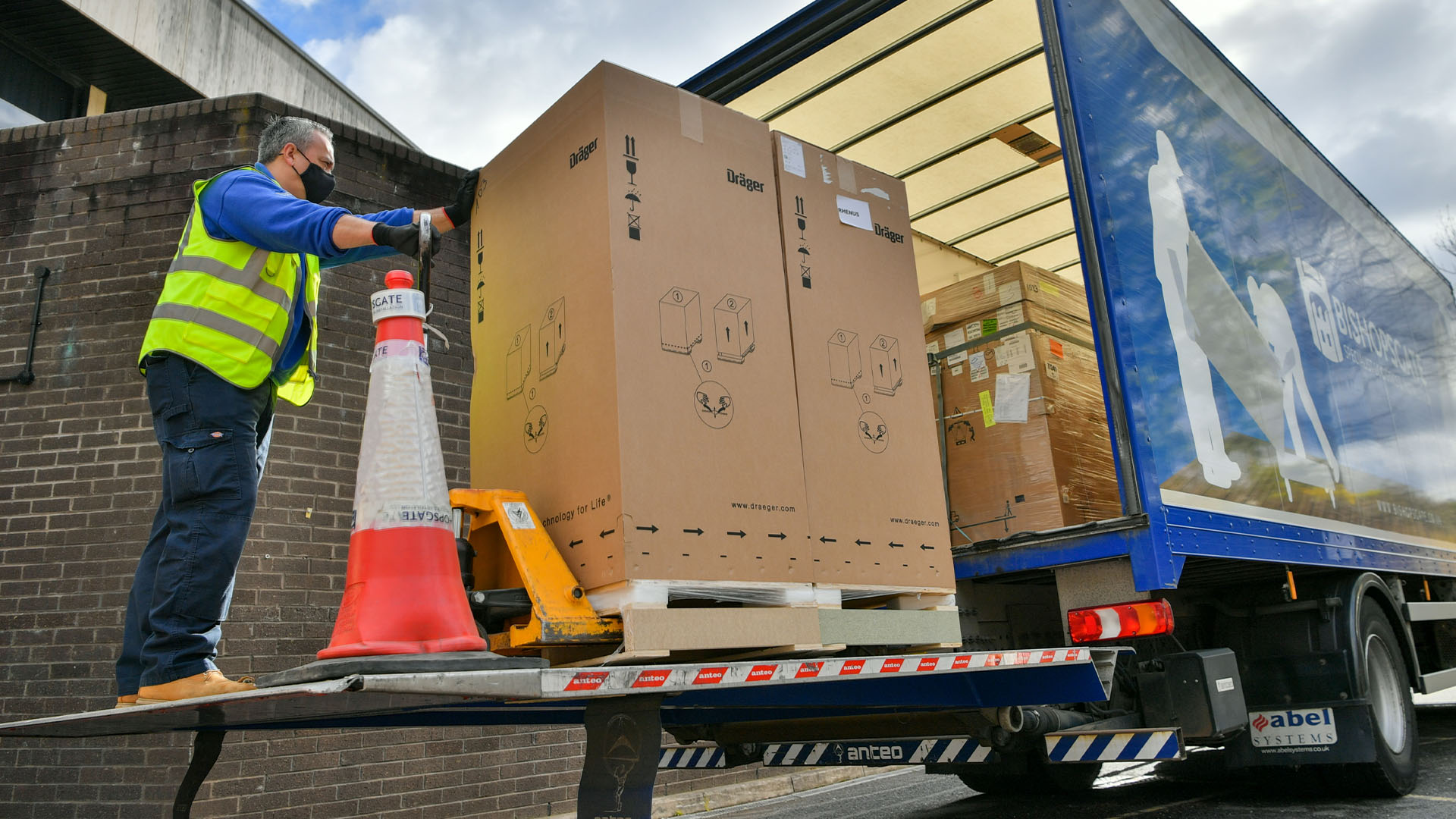
Engage with specialists if required
In some cases, you may need to hire specialists – companies that focus on medical equipment moving. They often have expertise that conventional moving firms do not.
Take Bishopsgate Specialist Installations, for instance. Our company prides itself on supporting medical suppliers and manufacturers of high-value medical equipment. We operate along the entire spectrum, assisting with the delivery and installation of small and large medical devices alike.
When working with very bulky items, such as MRI scanners, we partner with you right from the start, offering project managers who oversee deliveries and installations from wholesalers to your premises. We work closely with your nominated person to ensure that all large medical equipment handling projects are dealt with in a bespoke manner.
For small and medium-sized devices, we use our closed network of medical transportation experts. These professionals have training in handling the most delicate and sensitive of medical equipment and operate from five strategically placed warehouses across the UK. Each person in the team has in-depth knowledge of the handling requirements of the medical product being transported and installed. Crews understand how to pack and unpack items safely, securely, and in an environmentally friendly manner. They use advanced serial number tracking systems to provide you with status updates regularly.
Personalisation is possible with the Bishopsgate Transport Management System (TMS). This tool provides critical sales and delivery information to you while also keeping track of historical data proving our ability to deliver to customers as agreed in advance.
Get the timing right
Moving medical equipment requires more than merely transporting items from a warehouse and delivering them to a particular location on your premises. Patients must also be able to benefit. Therefore, timing is essential.
Getting the timing right, though, can be a challenge. You know that you need medical equipment but delivering it in a way that fits in with patients’ care schedules isn’t always easy.
Again, the best approach is to work with specialists. Bishopsgate can arrange deliveries and installations that are sensitive to the requirements of your medical environment.
Handle equipment with care
Finally, medical equipment is heavy and expensive and must be handled with care. Mobile operating tables can cost between £5,000 and £15,000. MRI scanners can cost anywhere from £600,000 to £1.9 million. Even if you are insured, damage may entail paying an insurance company a large excess. Handling equipment with care, therefore, is essential.
If you want to move medical equipment without worrying about damage, then get in touch with Bishopsgate today. We offer a range of specialist moving services designed to serve the specific and unique requirements of healthcare organisations. Our staff are highly trained and use specialist equipment to ensure safe and timely transport, delivery and installation of all your devices.
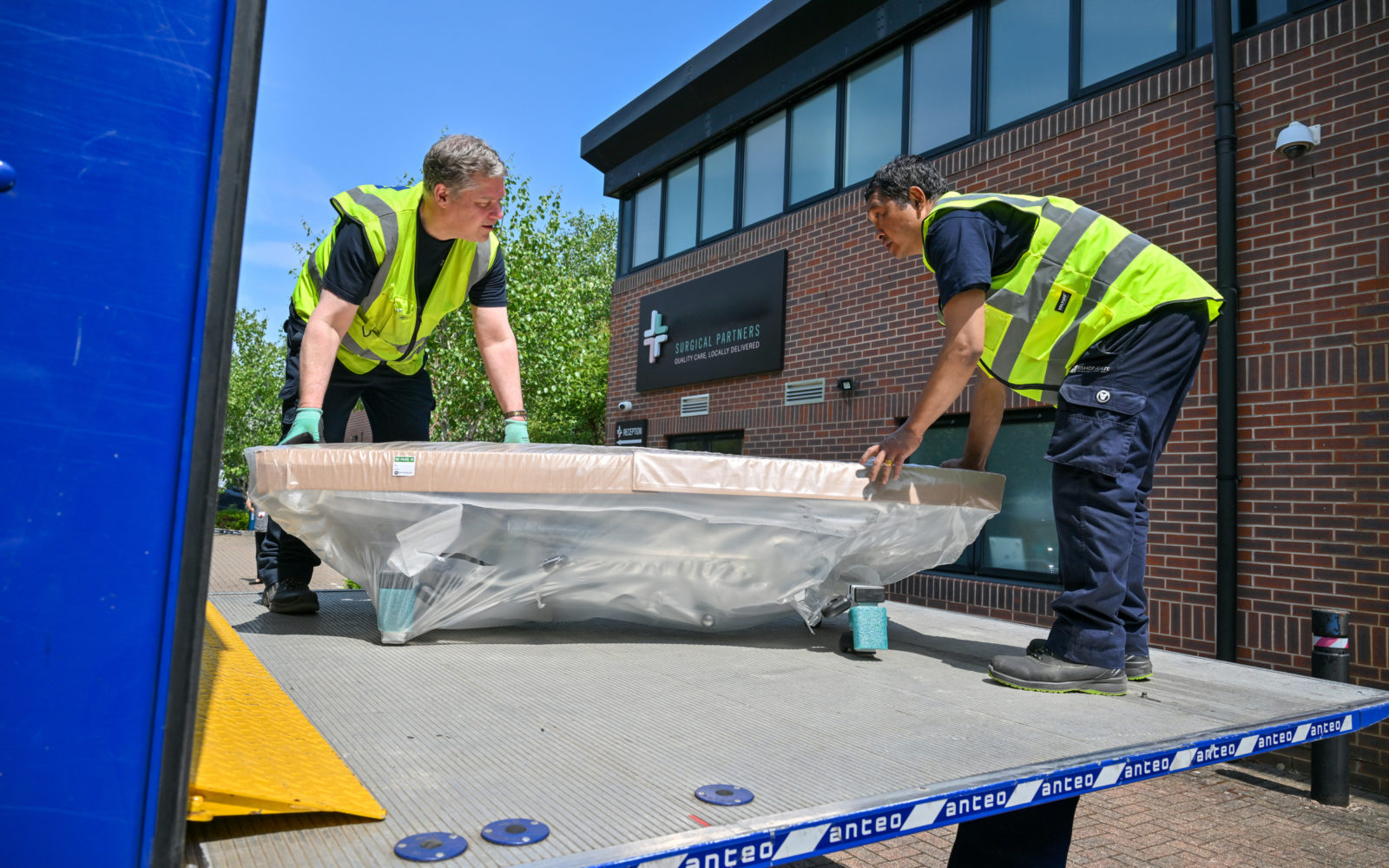
Carrying the load for your logistical ambitions
CONTACT US
